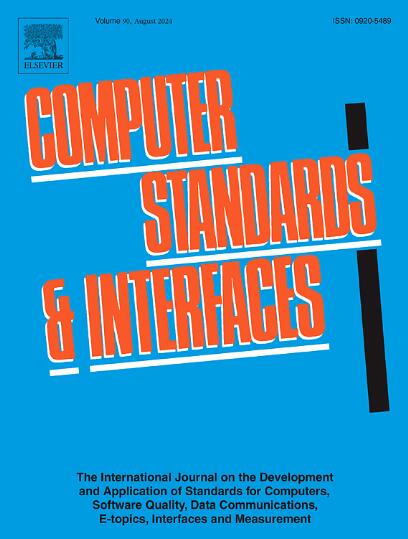LAMB: An open-source software framework to create artificial intelligence assistants deployed and integrated into learning management systems
IF 3.1
2区 计算机科学
Q1 COMPUTER SCIENCE, HARDWARE & ARCHITECTURE
引用次数: 0
Abstract
This paper presents LAMB (Learning Assistant Manager and Builder), an innovative open-source software framework designed to create AI-powered Learning Assistants tailored for integration into learning management systems. LAMB addresses critical gaps in existing educational AI solutions by providing a framework specifically designed for the unique requirements of the education sector. It introduces novel features, including a modular architecture for seamless integration of AI assistants into existing LMS platforms and an intuitive interface for educators to create custom AI assistants without coding skills. Unlike existing AI tools in education, LAMB provides a comprehensive framework that addresses privacy concerns, ensures alignment with institutional policies, and promotes using authoritative sources. LAMB leverages the capabilities of large language models and associated generative artificial intelligence technologies to create generative intelligent learning assistants that enhance educational experiences by providing personalized learning support based on clear directions and authoritative fonts of information. Key features of LAMB include its modular architecture, which supports prompt engineering, retrieval-augmented generation, and the creation of extensive knowledge bases from diverse educational content, including video sources. The development and deployment of LAMB were iteratively refined using a minimum viable product approach, exemplified by the learning assistant: “Macroeconomics Study Coach,” which effectively integrated lecture transcriptions and other course materials to support student inquiries. Initial validations in various educational settings demonstrate the potential that learning assistants created with LAMB have to enhance teaching methodologies, increase student engagement, and provide personalized learning experiences. The system's usability, scalability, security, and interoperability with existing LMS platforms make it a robust solution for integrating artificial intelligence into educational environments. LAMB's open-source nature encourages collaboration and innovation among educators, researchers, and developers, fostering a community dedicated to advancing the role of artificial intelligence in education. This paper outlines the system architecture, implementation details, use cases, and the significant benefits and challenges encountered, offering valuable insights for future developments in artificial intelligence assistants for any sector.
林:创建人工智能助手的开源软件框架,部署并集成到学习管理系统中
本文介绍了 LAMB(学习助手管理器和生成器),这是一个创新的开源软件框架,旨在创建人工智能驱动的学习助手,并将其集成到学习管理系统中。LAMB 针对教育领域的独特需求提供了一个专门设计的框架,填补了现有教育人工智能解决方案的重要空白。它引入了新颖的功能,包括将人工智能助手无缝集成到现有 LMS 平台的模块化架构,以及供教育工作者在无需编码技能的情况下创建自定义人工智能助手的直观界面。与教育领域现有的人工智能工具不同,LAMB 提供了一个全面的框架,可解决隐私问题,确保与机构政策保持一致,并提倡使用权威来源。LAMB 利用大型语言模型的能力和相关的生成式人工智能技术来创建生成式智能学习助手,根据明确的方向和权威的信息字体提供个性化的学习支持,从而增强教育体验。LAMB 的主要特点包括其模块化架构,该架构支持提示工程、检索增强生成以及从包括视频资源在内的各种教育内容中创建广泛的知识库。LAMB 的开发和部署采用了最小可行产品的方法,学习助手 "宏观经济学学习教练 "就是一个例子,它有效地整合了讲义转录和其他课程材料,以支持学生的查询。在各种教育环境中进行的初步验证表明,使用 LAMB 创建的学习助手在增强教学方法、提高学生参与度和提供个性化学习体验方面具有巨大潜力。该系统的可用性、可扩展性、安全性以及与现有 LMS 平台的互操作性使其成为将人工智能集成到教育环境中的强大解决方案。LAMB 的开源特性鼓励教育工作者、研究人员和开发人员之间的合作与创新,促进了一个致力于推进人工智能在教育中的作用的社区的发展。本文概述了系统架构、实施细节、用例以及所遇到的重大优势和挑战,为任何领域人工智能助手的未来发展提供了宝贵的见解。
本文章由计算机程序翻译,如有差异,请以英文原文为准。
求助全文
约1分钟内获得全文
求助全文
来源期刊

Computer Standards & Interfaces
工程技术-计算机:软件工程
CiteScore
11.90
自引率
16.00%
发文量
67
审稿时长
6 months
期刊介绍:
The quality of software, well-defined interfaces (hardware and software), the process of digitalisation, and accepted standards in these fields are essential for building and exploiting complex computing, communication, multimedia and measuring systems. Standards can simplify the design and construction of individual hardware and software components and help to ensure satisfactory interworking.
Computer Standards & Interfaces is an international journal dealing specifically with these topics.
The journal
• Provides information about activities and progress on the definition of computer standards, software quality, interfaces and methods, at national, European and international levels
• Publishes critical comments on standards and standards activities
• Disseminates user''s experiences and case studies in the application and exploitation of established or emerging standards, interfaces and methods
• Offers a forum for discussion on actual projects, standards, interfaces and methods by recognised experts
• Stimulates relevant research by providing a specialised refereed medium.
 求助内容:
求助内容: 应助结果提醒方式:
应助结果提醒方式:


